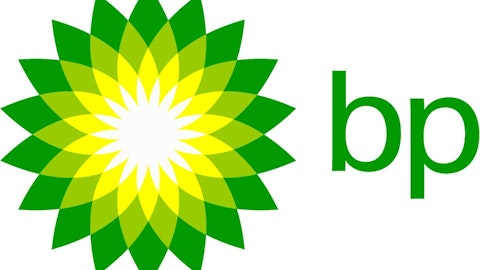We’ve fought numerous wars and spent countless billions protecting our interests in oil coming out of the Middle East. We’ve also spilled a lot of ink and let out too much hot air on the need to become energy independent. We’re well aware of the fact that securing our energy future is one of the most critically important undertakings of our modern economy.
As luck or fate would have it, we discovered that beneath our very soil are the resources we’ve deemed so vital to protect. Of course, those resources aren’t easy to produce; the cost is high both in terms of dollars and the environment. However, it’s a price we need to pay if for no other reason than that we’ve already paid such a high price to get where we are today.

Our neighbors to the north have apparently already had enough. After approving the $15 billion sale of Nexen to China’s CNOOC Limited (ADR) (NYSE:CEO), and Progress Energy’s $6 billion sale to Malaysian owned Petronas, Canadian Prime Minister Stephen Harper has now promised to approve deals like this only under exceptional circumstances. The question is, what is deemed to be an exceptional circumstance when Canadian law already states that a foreign investment must be a “net benefit” to Canada. There are no easy answers, here but that doesn’t mean we shouldn’t at least ponder the ramifications.
A cash infusion into the sagging oil sands could be deemed very beneficial if it leads to an increase in production. That could mean lower prices at the pump which could yield greater economic outputs. On the other side of the issue is the concern that jobs will be lost and, along with them, tax revenue. That’s just the economic ramification, which is only one of the many aspects that need to be considered.
Now, let’s translate this discussion into the one that’s sure to take place at some point here in the U.S. At this point, national oil companies haven’t made headlines with multibillion dollar purchases of U.S. oil and gas companies. Instead, the deals have been similar to the structure of the joint ventures’ Devon Energy Corp (NYSE:DVN) signed with Sinopec and Sumitomo. In the $2.5 billion Sinopec deal, Devon exchanged a 33% interest in 1.5 million acres across five emerging shale plays. The deal came with a $900 million cash infusion and a $1.6 billion drilling carry while the Sumitomo deal, while smaller, was very similar in structure. Devon Energy Corp (NYSE:DVN) sees these deals improving capital efficiency, mitigating exploration risk and preserving cash flow for future development.
Because we have no real energy policy, our domestic production is at the mercy of three overriding political themes: national security, foreign policy, and economic policy. As you might imagine, these don’t line up perfectly. Instead, we have harmony were there’s overlap but controversy where one political theme is driving the discussion.




